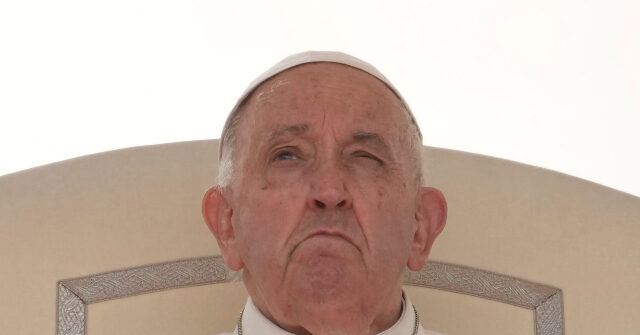In a recent address, Pope Francis sharply condemned Israel’s airstrikes in Gaza, describing the violence as “cruelty” rather than traditional warfare. This statement came following an Israeli bombardment that resulted in the deaths of at least 25 Palestinians, including seven children. The Pope’s heartfelt comments were directed towards members of the Roman Curia and emphasize his perspective on the humanitarian implications of the ongoing conflict. In highlighting the tragic loss of innocent lives, especially children, the pontiff aimed to draw attention to the emotional and moral crises arising from such acts of violence, underscoring the need for compassion amid global geopolitical tensions.
The Pope’s remarks are part of a broader pattern of criticism aimed at Israeli military actions in the ongoing conflict with Hamas. Amid rising tensions, he has previously called for a thorough investigation by international experts to assess whether these military actions violate the legal definitions of genocide. The gravity of this accusation has sparked significant backlash from Israeli officials and supporters, underscoring the sensitive nature of genocide as a terminology, particularly for a nation whose collective historical experience during the Holocaust frames their perception of existential threats. This dynamic illustrates the delicate balance world leaders must maintain while addressing acts of violence and humanitarian crises within the context of deeply rooted historical narratives.
In response to the Pope’s statements, Israeli Minister of Diaspora Affairs Amichai Chikli penned an open letter asserting that labeling Israel’s military operations as potential genocide trivializes the severity of the Holocaust. He cautioned that such trivialization approaches Holocaust denial, a highly sensitive subject for the Jewish community. This sentiment exemplifies the intense emotional reactions surrounding discussions of genocide and the moral obligations perceived by both sides in the conflict, revealing the complexities in dialogue regarding rights, morality, and historical injustices. The tension in this discourse illustrates the challenges faced by leaders striving for peace amid longstanding animosities and the ramifications of invoking historical trauma in contemporary conflicts.
Media commentary has also weighed in on the Pope’s remarks, with publications such as the Wall Street Journal accusing him of exhibiting bias against Israel. Critics argue that his rhetoric has become a tool for anti-Israel sentiment, which they believe undermines the pursuit of a balanced narrative in the conflict. By highlighting this perceived bias, mainstream media observers emphasize the importance of maintaining an objective discourse when discussing sensitive international issues, particularly those involving human rights abuses. This criticism is compounded by the broader geopolitical implications of such statements, which can impact public perception and international diplomatic relations.
Further controversy arose from the remarks of Edith Bruck, a Hungarian-born Holocaust survivor, who criticized the Pope’s suggestion that Israel’s actions in Gaza may amount to genocide. Bruck emphasized that true genocide is characterized by systematic extermination, citing harrowing historical events that exemplify this concept. Her contention that current events do not constitute genocide reflects broader concerns about the implications of casually using such a grave term, as it risks trivializing the suffering experienced during true instances of genocide. This distinction underscores the complexities inherent in discussing modern conflicts while paralleling them with historical cataclysms.
Ultimately, Pope Francis’ statements regarding the conflict raise significant moral questions about the nature of warfare, humanitarianism, and historical context in the discourse around Israel and Palestine. His call for compassion and his poignant remarks about the suffering of children in war serve as a reminder of the human cost of political, religious, and geographical conflicts. At the same time, the responses from Israeli officials, commentators, and Holocaust survivors reveal the weight of historical narratives and emotional sensitivities that accompany discussions on these issues. The evolving dialogue continues to highlight the tension between advocacy for human rights and the intricate realities of geopolitical conflict, as both victims and perpetrators grapple with the legacies of their histories.

